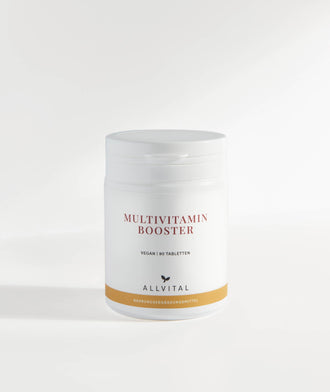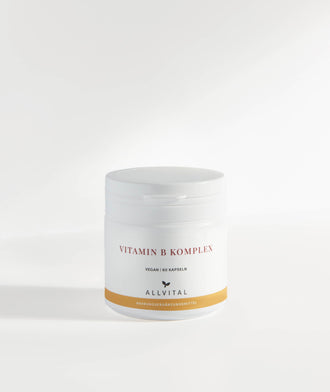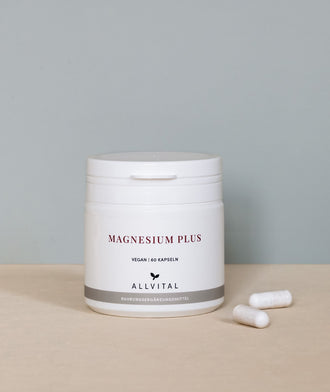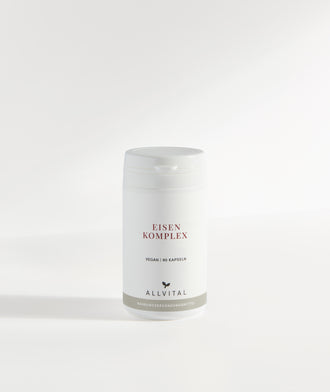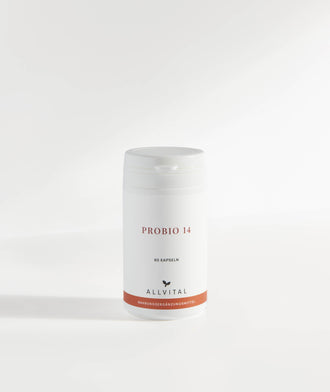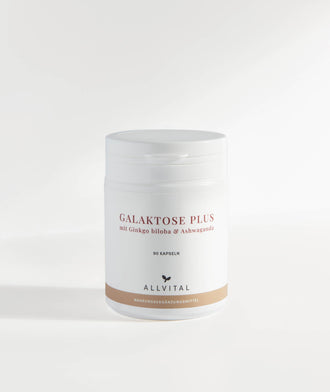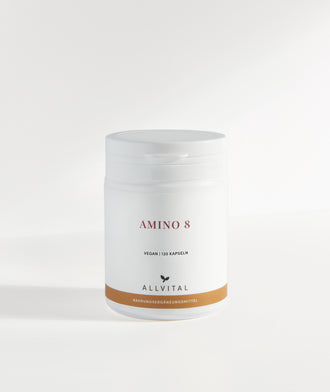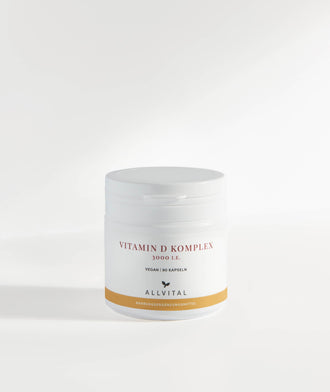
Vital nutrients for a healthy mind
Our mental health is not just a matter of the brain. It’s closely linked to proper nutrition and the body’s supply of certain vital nutrients.Why do we need vital nutrients for a healthy mind?
Mental health describes a state of emotional well-being in which we can cope with stress, adapt to changing circumstances, and feel productive. While physical and mental health are often seen as separate, from a holistic perspective, this division makes little sense. A healthy mind is deeply connected to the function of the nervous system, the hormonal system, and the gut – all of which depend on specific micronutrients to function properly.
Vital nutrients are crucial as building blocks for neurotransmitters, cell membranes, and hormones. They also act as electrolytes inside and outside the cells or as cofactors (helpers) for enzyme functions, which in turn are necessary for nearly all metabolic processes in the body’s cells.
If the body lacks these essential substances, this can impair normal psychological function. Given how common micronutrient deficiencies are, physical causes should always be considered in cases of mental health issues like depression, burnout, or anxiety disorders.
The gut-brain connection
You may have heard of the “gut-brain axis”, which refers to the close relationship between our digestive system and the brain. Some key connections include:
- Numerous nerve fibers run from the brain to the gut and vice versa. This means that mental stress can significantly affect the gut, and an unhealthy gut can directly impact mental health.
- The gut microbiome produces various neurotransmitters that influence the nervous system, including serotonin, short-chain fatty acids, acetylcholine, and various amino acids.
- The gut lining houses a large portion of the immune system. Immune reactions to food components can trigger inflammation in the body, including in the nervous system. These immune responses can occur with a damaged gut barrier (leaky gut syndrome).
Gut health is therefore critical for brain health and, by extension, mental health. The central role of the gut in this context highlights why a healthy diet is so important for mental well-being.
Nutrition for a healthy mind
The foundation of a healthy body and mind is a nutrient-rich diet that promotes gut health. This kind of diet includes a daily variety of fruits and vegetables, supplemented with legumes, nuts, whole grains, meat, fish, and more. Fermented foods are particularly beneficial for gut health.
In our blog post How a balanced intestinal flora benefits your health Stable blood sugar levels thanks to a healthy diet, we go into detail about the connection between diet and the gut microbiome. Below, you’ll learn which micronutrients optimally complement a healthy diet and help strengthen mental health.
These nutrients strengthen our mind
The micronutrients presented in the following sections are often dosed higher in holistic therapy for mental health problems to compensate for severe deficiencies.
It’s also important to remember that the body requires all vital nutrients for optimal health. Therefore, we recommend a micronutrient complex like our Multivitamin Booster as a foundational supplement.
Omega-3 fatty acids
Omega-3 fatty acids are essential components of cell membranes. DHA (docosahexaenoic acid), in particular, plays a central role in brain health, as it is found in high concentrations in the brain. Our DHA plus EPA supplement is ideal for daily intake of these crucial fatty acids.
B vitamins
B vitamins perform numerous functions in the brain’s energy metabolism and support nerve function. A deficiency can lead to fatigue and concentration problems. Particularly important for nerve function are vitamins B6 and B12, along with thiamine (B1), riboflavin (B2), niacin (B3), and biotin (B7).
Our Vitamin B Complex contains all eight B vitamins in high doses, combined with other substances that promote B vitamin absorption and contribute to a healthy nervous system.
Magnesium
Magnesium is well-known for its muscle-relaxing properties and calming effects. This mineral is also essential for the function of nerve cells and energy metabolism. Magnesium deficiency can lead to increased stress susceptibility, concentration problems, depressive moods, headaches, inner restlessness, and sleep disturbances.
Magnesium Plus provides highly bioavailable magnesium, combined with vitamin B6, which improves cellular magnesium absorption.
Zinc and iron
The trace elements zinc and iron play vital roles in cognitive function, the immune system, and energy metabolism. A deficiency in these elements can negatively affect mental health.
Our Zinc supplement contains zinc from three different organic zinc salts for improved absorption, while Iron Complex is an ideal combination to support iron metabolism and blood formation. Learn more about iron in the linked blog post.
Vital nutrients for gut health
To support gut health, we recommend ProBio 14, which contains 14 probiotic strains (lactobacilli and bifidobacteria) essential for a healthy gut microbiome. Additionally, ProBio 14 includes prebiotics like fructooligosaccharides (FOS) and inulin, which serve as food for beneficial gut bacteria.
We’ve also developed Gut-Brain Complex to promote both gut and brain health. This product contains the amino acid L-glutamine and short-chain fatty acid propionic acid, both of which are crucial for the gut lining and nervous system.
Galactose
Galactose is a component of milk sugar (lactose) and is chemically very similar to glucose (“blood sugar”). Glucose is the primary energy source for the nervous system.
However, many people suffer from glucose metabolism disorders. Their cells become less responsive to the hormone insulin, which makes it difficult for them to absorb glucose from the blood. This is particularly problematic for the brain, as it relies on glucose. The consequences of an energy shortage in the brain can include poor concentration, irritability, and cravings.
A disturbance in glucose metabolism is often linked to gut health. Since the gut and the mind are closely connected, as explained above, this issue can also affect patients with mental health problems.
Galactose can help in such cases. Unlike glucose, this sugar can be absorbed into nerve cells without the need for insulin, ensuring the brain's energy supply for those with impaired glucose utilization.
Amino acids
Amino acids are the building blocks of all proteins in the body, including enzymes, immunoglobulins, and connective tissue fibers. Amino acids are also needed to form various neurotransmitters and hormones. Amino 8 contains all essential amino acids and can be taken depending on your dietary protein intake.
Vitamin D
Numerous studies show a connection between vitamin D and mental health. Our Vitamin D Complex provides 3,000 IU of vitamin D3 per day. Vitamin D3 + K2 also contains highly bioavailable vitamin K2 in combination with vitamin D3. The two fat-soluble vitamins work synergistically.
Conclusion: Vital nutrients support mental health
A nutrient-rich diet, combined with specific supplements, is a vital foundation for mental health and resilience. When we are well-nourished, we can better handle stressful and demanding phases of life and avoid nutrient deficiencies that can have significant effects on both physical and mental health.


